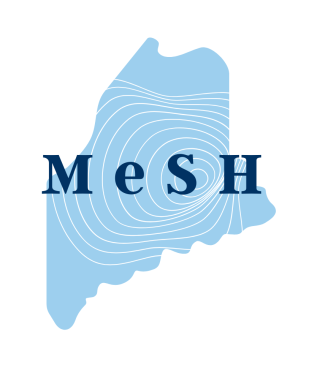Courses Related to Sustainability in Construction, Engineering, and Materials
Course offerings are subject to change. We will try to keep this list updated but please verify information in the Undergraduate Catalog if you see a course that is of interest.
Courses listed on this page focus on topics in sustainable engineering, materials, energy technology, and construction techniques.
Civil and Environmental Engineering
CIE 210 – Sustainability in Engineering
Introduction to sustainability and sustainable development concepts, the role of engineers in sustainable development, ethical dimensions of sustainable development-engineers, technology and ethics, measuring sustainability, green and sustainable materials, and engineers as problem solvers and curators of the planet. No specialized background in engineering, sciences or social sciences is required.
CIE 480 – Wind Energy Engineering
This course presents the theory and design of modern wind turbines. Theoretical aspects of the course cover the fundamentals of assessing the aerodynamic loads and efficiency of a wind turbine. Design procedures for wind turbines are outlined with an emphasis on maximizing performance, assuring structural integrity and minimizing the cost of energy. Current trends in offshore wind are also covered as well as the social and environmental issues of a burgeoning wind energy industry.
Construction Engineering Technology
CET 412 – Sustainable Population and Environmental Design and Construction
This course provides instruction in Leadership in Energy and Environmental Design (LEED), green building design, environmental favorability rating, and progressive leadership toward the goal of reducing the population footprint (i.e., development sprawl and resource consumption) through innovative construction practices.
Electrical and Computer Engineering
ECE 467 – Solar Cells and their Application
This course is concerned with electricity generation direction from solar energy using photovoltaic solar cells. The solar spectrum is discussed, solar cell types are introduced, and efficiency factors are discussed. Techniques for efficiency improvement are reviewed. Photovoltaic electricity generation system design methods are introduced. Economic analysis, such as life cycle costing, and environmental impact of PV systems are discussed.
Electrical Engineering Technology
EET 460 – Renewable Energy and Electricity Production
An overview of renewable energy resources, energy conversion and storage for stationary, and transportation applications. Topics include: Basics of electrical energy and power generation, load specification, history of electric utilities, distributed generation, the economics of energy, biomass fuels, wind and solar power.
Mechanical Engineering
MEE 433 – Solar-Thermal Engineering
Introduces solar energy collection and use as process thermal energy. Includes performance analysis of solar collectors and thermal energy storage devices both separately and as a combined system.
MEE 480 – Wind Energy Engineering
This course presents the theory and design of modern wind turbines. Theoretical aspects of the course cover the fundamentals of assessing the aerodynamic loads and efficiency of a wind turbine. Design procedures for wind turbines are outlined with an emphasis on maximizing performance, assuring structural integrity and minimizing the cost of energy. Current trends in offshore wind are also covered as well as the social and environmental issues of a burgeoning wind energy industry.
MEE 491 – Offshore Wind Farm Engineering
This course introduces the basics of offshore wind farm engineering and design. A broad introduction is provided on the topics of offshore climate, turbine selection criteria, substructure design, installation processes, operation, maintenance, electrical infrastructure, environmental impacts, and decommissioning aspects of offshore wind farms. The basic theory together with state-of-the-art industrial practices and future technologies driving the offshore wind farm development will be addressed.
School of Forest Resources
SFR 215 – Introduction to Sustainable Materials and Technology
Introduction to sustainable materials and products (including energy) derived from the forests and other renewable resources as well as processes and technology to produce, process, and convert such materials into useful products. The fundamentals of production systems will be described through required raw material forms and processing systems. The attributes and use of these products will be described from physical, chemical, mechanical, biological, and lifecycle perspectives.
SFR 455 – Bioenergy Sources, Systems, and Environmental Effects
A detailed introduction to the use of biomass for bioenergy and includes a broad review of biomass sources, processing systems, human health effects, potential environmental damage, pollution abatement, energy generating systems and the general effects of using renewable and non-renewable sources of energy on the human population. Common definitions, units and the basic thermodynamics of biomass use are discussed. Environmental issues including greenhouse gas emissions are examined along with the benefits and environmental concerns related to using renewable sources of bioenergy. Specific examples, volatile organic chemical release and energy use in drying forest resources are included. Scheduled labs involve field trips.
SFR 456 – Physical and Mechanical Properties of Sustainable Materials
The physical and mechanical properties of plant-based materials, including wood and wood composites, as related to basic processing techniques and their use in structural, packaging, and other applications are described. The objectives of the course are to develop a sound understanding of the physical and mechanical properties of plant-based materials in relation to ultrastructure, environmental effects, and their application to simple structural systems. Topics related to the physical properties of wood include moisture content, moisture sorption, swelling/shrinkage of hygroscopic materials, density, porosity, thermal properties, friction, electrical properties, etc. Topics related to the mechanical properties covered include axial, flexural, shear, and impact performance, the influence of moisture, temperature, biological agents, and time on mechanical properties. Laboratory demonstrations are arranged to conduct the measurement of these properties according to ASTM standards. SFR 456 and SFR 556 cannot both be taken for degree credit.
SFR 460 – Sustainable Materials and Technology Manufacturing Tour
One-week inspection trip to representative manufacturers of bioproducts selected for demonstration of typical plant and forest operations. A written report is required.

